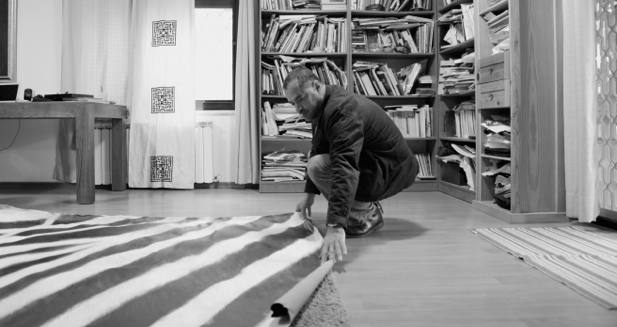Among his many achievements and his status as one of Palestine’s most important and relevant contemporary artists, Khaled Hourani is probably best known for his role as a co-founder of the International Academy of Art in Palestine, and for bringing – for the first time – a work by Picasso into the West Bank in 2011. This year marks another first for the artist, whose works from 2000 to the present are currently being displayed at Glasgow’s Centre for Contemporary Arts in his first-ever retrospective. REORIENT’s Inaya Hodeib caught up with Khaled to chat about the works being exhibited, his artistic practice, the phenomenon of idolatry, and – among, of course, other things – cats.
You are known as an artist, a curator, and an art critic – what led you to take such paths? Did the decision to become, for instance, a curator come to you naturally, or were you in a situation where you felt change was needed?
What matters to me is the practice of art. We live in countries where an artist is forced to play more than one role at the same time – writing, organising shows, and even producing them, among many other things. I can say that I find a lot of good comes from all this, since nowadays all these [activities] are linked and are very important aspects of contemporary art; the lines are utterly blurred between curating a show, producing one, and even writing.
I have often found myself working in these fields more than once – not only through organising art exhibitions like the Picasso in Palestine project that took place in Palestine, and which [was] a very good example of how an artist can himself be involved in the process of curating – but also because more than once the nature of what needed to be done in order to convey a message or idea that I wanted to share with others simply required me to write about the matter, or produce a whole show with several art works; and in most cases, my works were not among them. In such cases, I do not care what the ‘process’ itself is called, be it art, curating, or writing.
See the original article here:






























Comments